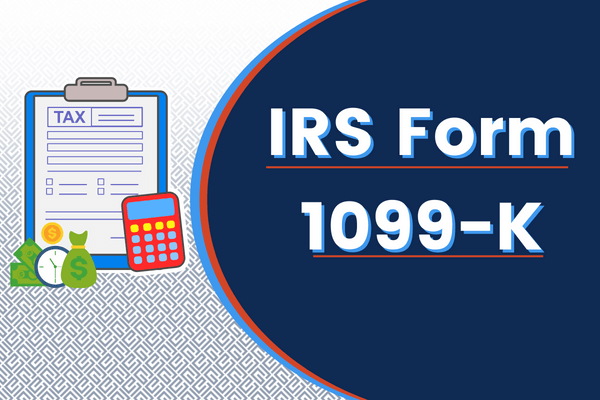If you work for yourself and get paid through online payment services like PayPal or Square, you might receive a form called a 1099-K. This form shows how much money you received through that service during last year.
Even though it seems like just another boring tax form, it’s crucial to understand what it is and how to use it for your taxes.
In this blog post, we’ll explain the basics of the 1099-K form and some helpful tips for making tax time as stress-free as possible.
What is Form 1099-K?
IRS Form 1099-K reports debit/credit card transactions and third-party network payments to the IRS.
It’s not a substitute for your IRS tax return but a record of the total payments received through these transactions.
Businesses and self-employed individuals use the information on Form 1099-K to accurately report their earned income on their tax returns.
When are 1099-K forms required to be filed?
The person or business issuing the 1099 form must provide a copy to the recipient and IRS by January 31st of each year.
It is important to note that failure to file a 1099 form accurately and on time can result in IRS tax penalties.
Who receives Form 1099-K?
Any retailer or business receiving payments from credit cards and third-party payment networks can expect to receive a 1099-K.
The form will be used to calculate and report your business income. You must file a Schedule C with your tax return if you are a sole proprietor.
The 1099-K form will help you understand how much you received from clients through electronic payment methods such as Venmo, PayPal, Zelle, or similar payment methods.
Regardless of the number of transactions processed, if their total value or the overall sales made through those payment methods meet a specific amount, they must be reported on Form 1099-K.
Don’t hesitate to contact one of our qualified tax lawyers if you have any questions.
What is the 1099-K reporting threshold?
The threshold for reporting on Form 1099-K is the minimum amount of payment card or third-party network transactions that must occur annually before filing.
The IRS sets the reporting threshold, which is subject to change each year.
Through the end of 2022, the threshold for reporting on Form 1099-K is 200 transactions and $20,000 in gross sales.
However, those rules now state that when there is more than $600 worth of transactions in a year, the parties involved must send a 1099-K.
This rule goes into effect for the 2023 tax return due in 2024.
It’s also important to note that the threshold for reporting on Form 1099-K only applies to payment card and third-party network transactions.
Businesses are not required to report transactions processed through other means, such as checks or bank transfers, on Form 1099-K.
How to Report 1099-K Income on your Taxes
Reporting your 1099-K income on your taxes doesn’t have to be a chore. Here’s a simple guide to help you get it done:
- Collect your forms: Make sure you have your 1099-K forms for the year. Keep them in a safe place for your records.
- Report the income: On your tax return, add the total income reported on your 1099-K forms to the section for miscellaneous income. This is where you’ll report all your additional income from sources other than your main job. If you’re a sole proprietor, you’ll likely need to file a Schedule C with your tax return to report your business income.
- Deduct your expenses: If you have any expenses related to the income reported on your 1099-K, be sure to subtract those from your total income. This will lower your taxable income and help you save on your taxes.
- Double-check for accuracy: Before you file your tax return, take a moment to verify that the information on your 1099-K forms is accurate and that you’ve reported all your income.
In a nutshell, reporting your 1099-K income is easy. Collect your forms, report the income, deduct your expenses, and double-check for accuracy.
Let Us Help You File With Ease!
Have you received a 1099-K form and feel overwhelmed about reporting it on your taxes? Don’t worry; our team of experienced tax attorneys is here to help!
We deeply understand tax laws and will ensure accurate reporting of your 1099-K, keeping you in good standing with the IRS.




